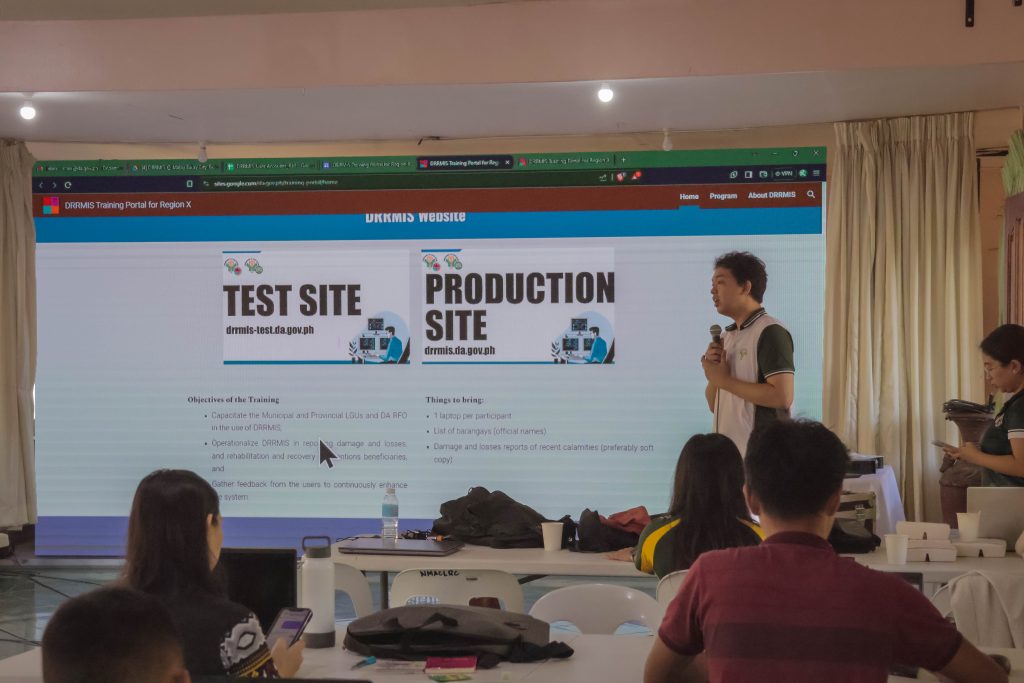
Agri-10 holds a training on DRRMIS for its DRRM report officers.
MALAYBALAY CITY, BUKIDNON – The Department of Agriculture – Regional Field Office 10 (DA-10), through the Climate and Environment Risk Reduction Management Unit (CERRMU), conducted a three-day training on Disaster Risk Reduction and Management Information System (DRRMIS) for the agency’s DRRM report officers on April 16-18 at the Northern Mindanao Agricultural Crops and Livestock Research Complex, in Dalwangan here.
DRRMIS is a web-based system that allows the automation of reporting damage and losses by the DA operating units during calamities.
Allan Earl S. Labrador and Marianne Merhiel G. Icawat of the Disaster Risk Reduction Office, Mark Adrian L. de Jesus of the Operations Management Information Section, and Princess Joy T. Garcia of the Disaster and Climate Information Office, all from the Field Programs Operation and Planning Division of the DA-Central Office served as the resource persons.
In Garcia’s presentation, she mentioned that the primary objective of the DRRMIS is to digitalize the established processes and workflows and, at the same time, function as the central portal for data collation and reports generation of damage and losses in agriculture.
DA-10 Field Operations Division chief and DRRM focal person Luz I. Guzman, PhD, imparted the significance of the said capacity enhancement among DRRM report officers.
“We are dealing with reducing the effects of disasters, thus swift action is expected from us, especially during the onset of a calamity. We also want that the information gathered are real-time, as much as possible,” said Guzman.
She pins her hope that through the said training, the participants will learn new ways of becoming more prepared; whether climate-related, pest and diseases, or human conflict.
“I also hope that the participants, as the first-hand learners, will share this knowledge with others so additional manpower who are also knowledgeable can assist,” Guzman added.
Meanwhile, Sherafin Simon F. Calacar, CERRMU focal person, shared that they will cascade the training down to the local government units (LGU) level as they are on the frontline in facing and coping with various calamities.
“We also wanted to capacitate our LGU counterparts for them to better understand the system and reflect real-time or almost real-time data. This will be beneficial to identify the best approach in dealing with these disasters properly.”
Joining the training are the heads and report officers of the DA-10 banner programs, provincial operations centers, and other operating units.# (CRS)
